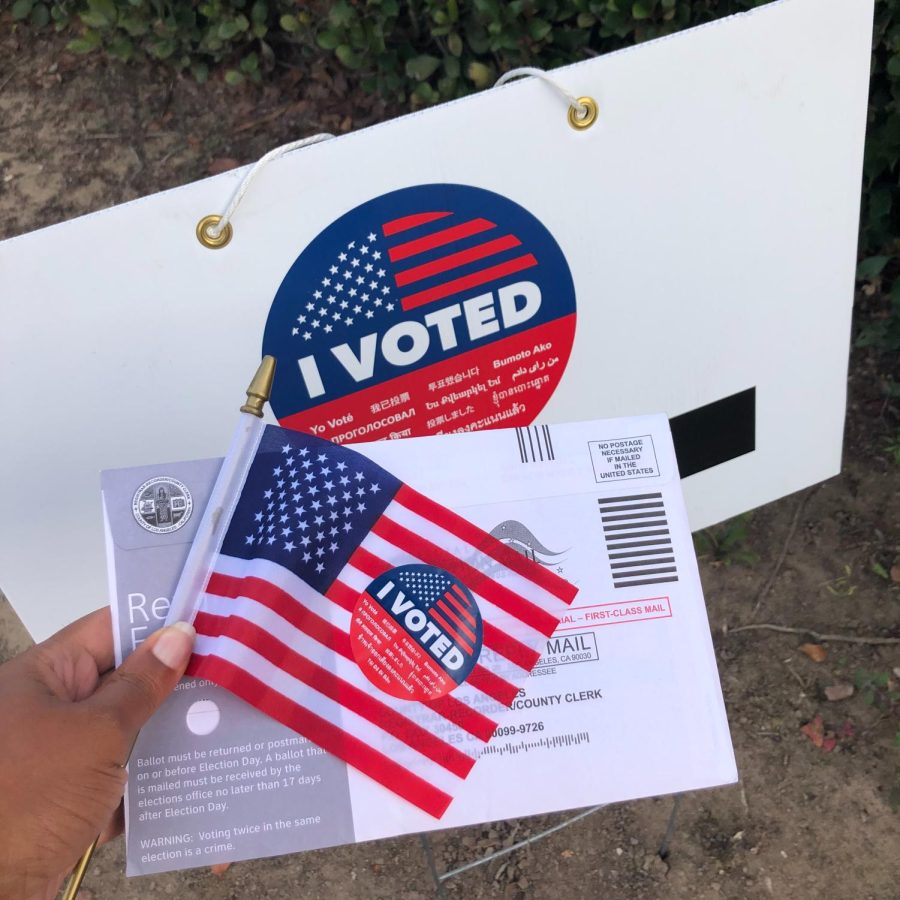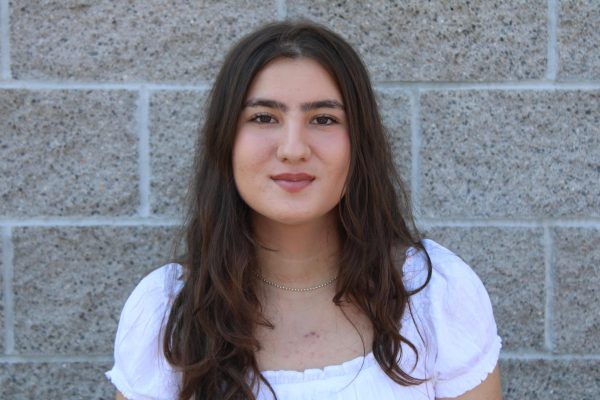Should Teenagers be Able to Vote?
Mail-in ballots were utilized by individuals wishing to vote at home during the Coronavirus Pandemic.
December 7, 2022
*The opinions expressed within the content are solely the author’s and do not reflect the website’s or its affiliates’ opinions and beliefs.*
Many adults eligible to vote believe that young individuals are incapable of making mature and educated voting decisions on their own. However, this naive assumption is entirely misguided and should not be used to prevent young individuals from having a voice in our government. Teenagers throughout the country have many responsibilities that they take care of and are already being recognized in many ways as adults across the country. As early as the age of 16, people may start contributing to paying their family’s taxes and driving to run errands, even though these duties are typically allocated to “adults.” Thus, introducing younger people to the concept of voting allows them to share their experiences and become more involved in American democracy.
UHS junior Loijy Morsy, a student with a job outside of school, expressed her opinion on the duality of her treatment as a teenager.
“I worked a lot throughout the summer and I am working during the school year as well,” Morsy said. “I get paid the same as my fellow workers and I work the same amount of hours. Why is it that at work they treat me like an adult but the rest of the country doesn’t?”
Young people can make highly educated votes because many of them have been learning about the American political system all of their educational life. Teenagers are taught about the philosophy of the government and political parties from a young age. Politics is a topic that is widely addressed in one’s community, whether around the dinner table with family or at lunch with student peers. There is also the serious impact of social media and the internet in allowing these young people to learn and establish their own beliefs. All of this access to information has allowed younger people to get more involved in politics and to better grasp the importance of their country through time. However, they are powerless to act on that knowledge and are kept silent until the rest of society deems them old enough to have an opinion.
Aside from learning and researching politics and the government, many teenagers have already made significant changes in the United States. They are the ones who are working hard in society to bring about change in the world, whether it be about a person’s race, religion, or sexuality or the world’s significant environmental or political problems. These young people want these issues and circumstances to be addressed rather than ignored, as demonstrated through staged protests in response to major events such as movements like Black Lives Matter, March for Our Lives and the Sunrise Movement. For instance, a group of six teenagers advocated against racial injustice by organizing a protest in Nashville, Tennessee, in June of 2020, in which approximately 10,000 people came to support.
The president of the UHS Act for Change organization junior Luba Al-Khalili explained why she supports the voting age being lowered.
“Gen Z had one of the greatest voting turnouts these past midterms than in previous years, truly showing the possible impact and changes our youth can influence in our modern government and democracy,” Al-Khalili said. “With lower restrictions on voting rights, greater motivation of political advocacy and literacy will be necessary for our younger generation.”
These same students who are working extremely hard to bring about change in the country lack the fundamental right to vote. The right to vote is essential to the democratic process and allows citizens to participate actively in government decision-making through elected representation.
A commonly asked question among power-holding members of the government is whether or not teenagers would go out and vote, and the answer is a definite yes. Because all of the changes currently being implemented will have far-reaching consequences in the future, young individuals would jump at the opportunity to shape their future. They will be the ones most impacted by the laws that are passed, especially with topics such as food insecurity and pollution, both of which are current problems that will continue to devastate our nation’s population if adequate action fails to be taken. Additionally, in the laws surrounding climate change, or lack thereof, the current citizens able to participate in politics are harming the planet on which future generations will live. All in all, older generations have saddled the youth with responsibilities without enhancing their rights, and younger generations should have a say in how their future unfolds.
UHS junior Delband Farzaneh expressed her views on how she felt about the contributions of the current younger generation.
“I honestly think that the voting age should be lowered,” Farzaneh said. “This generation has been so active in what is currently going on in the government . . . I believe that they will go out there and vote, and I would go out there to vote if I had the opportunity to.”
The older generation is also concerned that youths will adapt to their parent’s values and simply follow their votes. However, adolescents are significantly less likely to follow the same political attitude as their parents, frequently turning away from traditional values to embrace more radical perspectives on certain views that they feel strongly about by the time they enter college. Many kids form their ideologies about the government, political parties, president and other topics after experiencing and learning different ideals from peers, social media and other sources.
There is great significance in holding a voice in one’s government and being able to implicate change in society. Teenagers not only possess the maturity to make logical decisions in laws and elected officials, but they also have an important and unique perspective on resolving current issues and promoting the welfare of American society as a whole.





